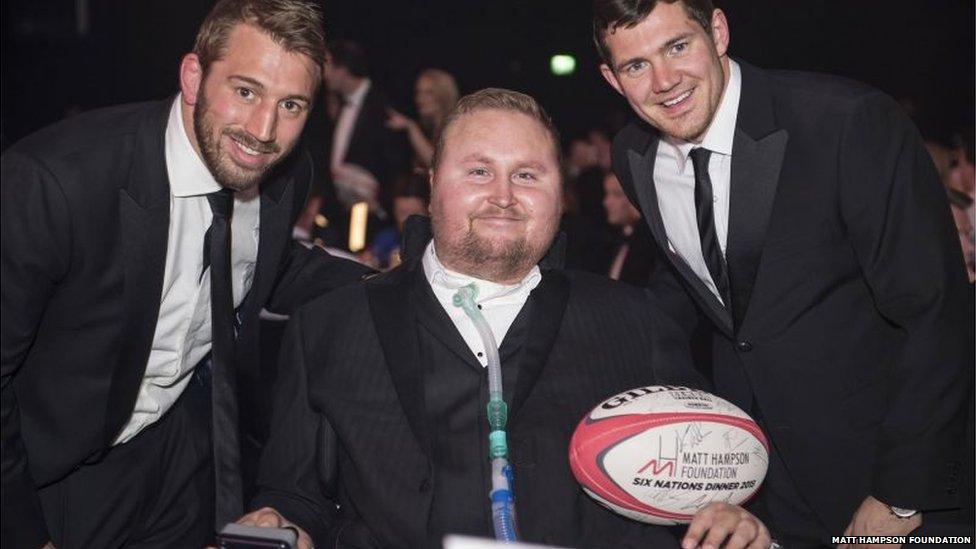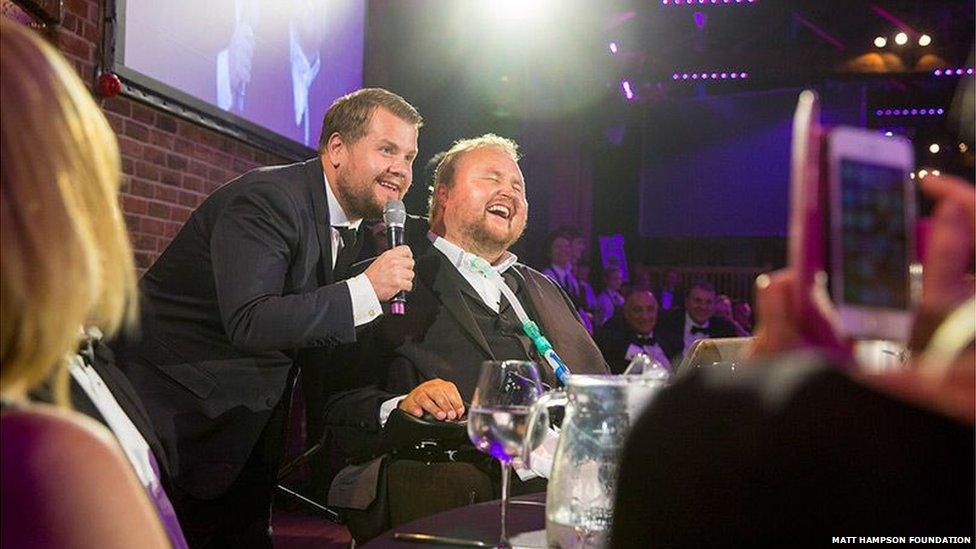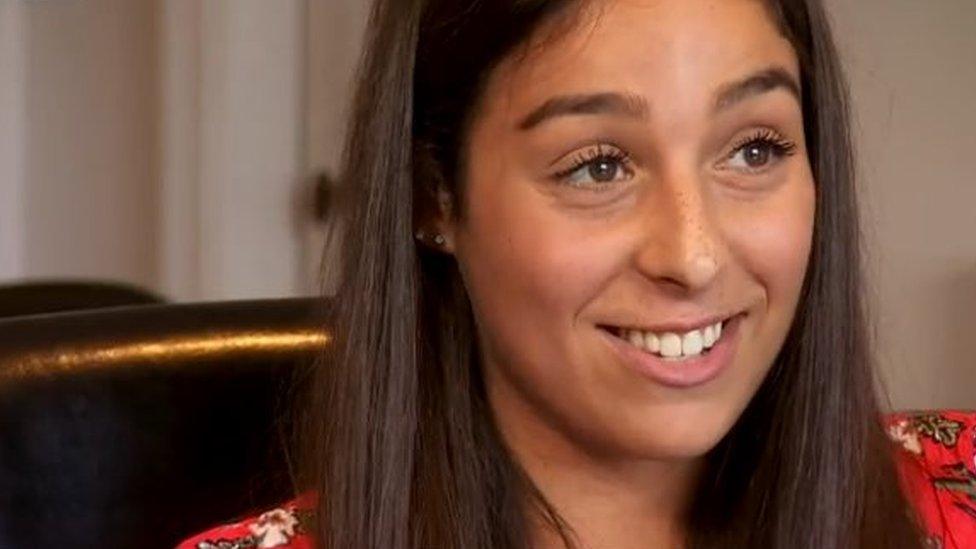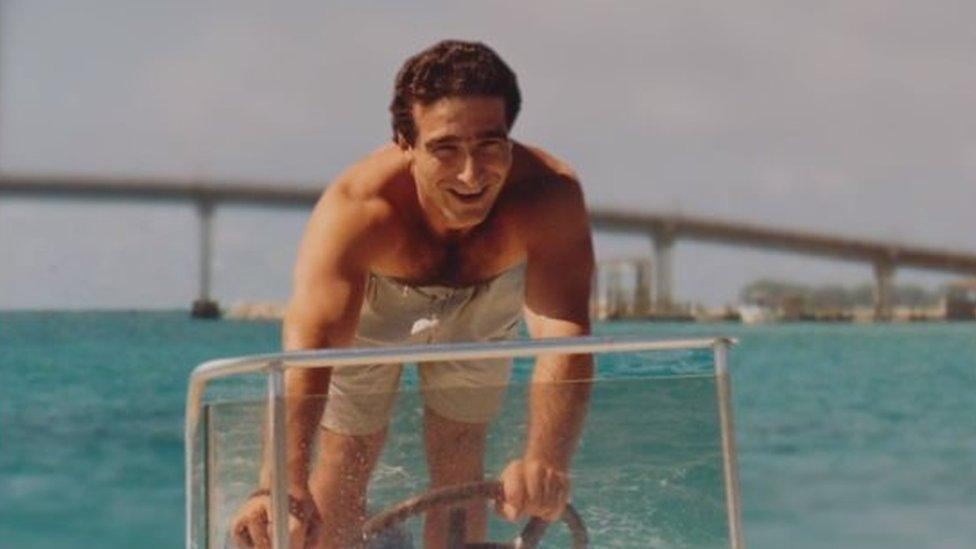Those for and against assisted dying give their views
- Published

Matt Hampson at his foundations' charity ball with England rugby players Chris Robshaw and Alex Goode
Plans to change the law in England and Wales on what's called "the right to die" have been thrown out by politicians.
It would have meant people who had six months or less to live could have asked for drugs to help them end it.
It would have applied to over 18s and would have needed the OK from two doctors and a judge.
It's currently illegal - you face up to 14 years in jail if you encourage or help anyone take their own life.
It's the first time in almost 20 years the issue had gone to a vote, and it was rejected by a large majority of 212 MPs.
Supporters say it would have given dignity to the terminally ill, while others believe it's dangerous to bring in any kind of assisted dying.
Matt Hampson was playing rugby for England U21s when the scrum collapsed and he was left paralysed from the neck down. He's now unable to breathe without the aid of a ventilator.

Matt with James Cordon raising money for other injured sports players
He finds it hard to understand why people would want to end their lives.
"I have to have two people with me 24 hours a day to help look after my vent," he says.
"Independence gets taken away from you. But I haven't really got an excuse to be downbeat or miserable."
He says the accident changed everything, but that life is still good.
"I always have a laugh and a joke that it actually took me to get paralysed from the neck down to actually get busy in my life," he explains.
"Being a rugby player, life's pretty simply and then when that gets taken away from you, you've got to reinvent yourself
"You've got to move on with your life and do something productive which is setting up my Matt Hampson Foundation , externalhelping other people."
He says the thought of ending his own life never crossed his mind, but he respects people who do make that decision.
"It's really sad when people decide to go down that route," he goes on.
"For me I've never ever thought that way. I'm not saying I didn't have dark days initially, I did have dark days.
"But to go to that extreme when you're in that situation is really difficult and I just can't really comprehend going to those sort of measures really."

21-year-old Keleigh Spector's dad had a spinal tumour and went to Switzerland to end his life.
She would welcome a change to the law which would give terminally ill people a chance to make a decision about their deaths.
"At the back of your mind you know it's going to happen," she says.
"You don't actually think it's real. He sat us all down and spoke about everything and just asked us and made us understand."

Keleigh's dad, Jeffrey, was 54 when he decided to end his life because he had an inoperable tumour on his spine
Keleigh found the experience of being with her dad at the end comforting, but doesn't believe people in the UK should be forced to travel to another country to end their suffering.
"Having those extra moments with your dad you just get to share those last memories and I think it made him happy as well that we were there," she explains.
"Just him smiling and having a good time and being relaxed.
"Going to an unknown country and then not coming back with your dad that's just horrible," she says.
Follow @BBCNewsbeat, external on Twitter, BBCNewsbeat, external on Instagram, Radio1Newsbeat, external on YouTube and you can now follow BBC_Newsbeat on Snapchat